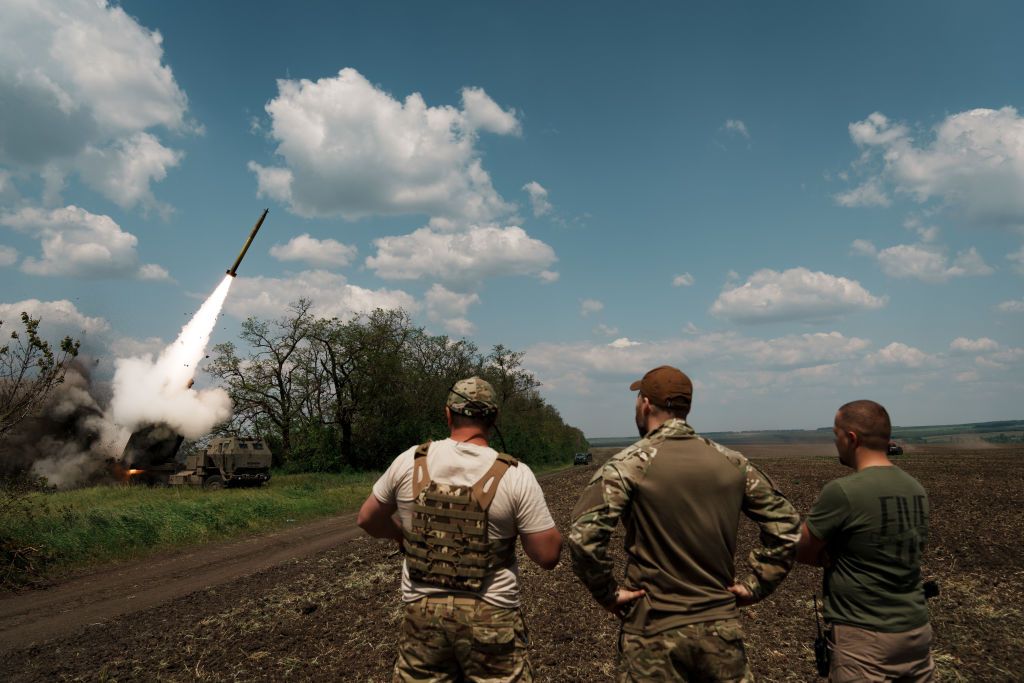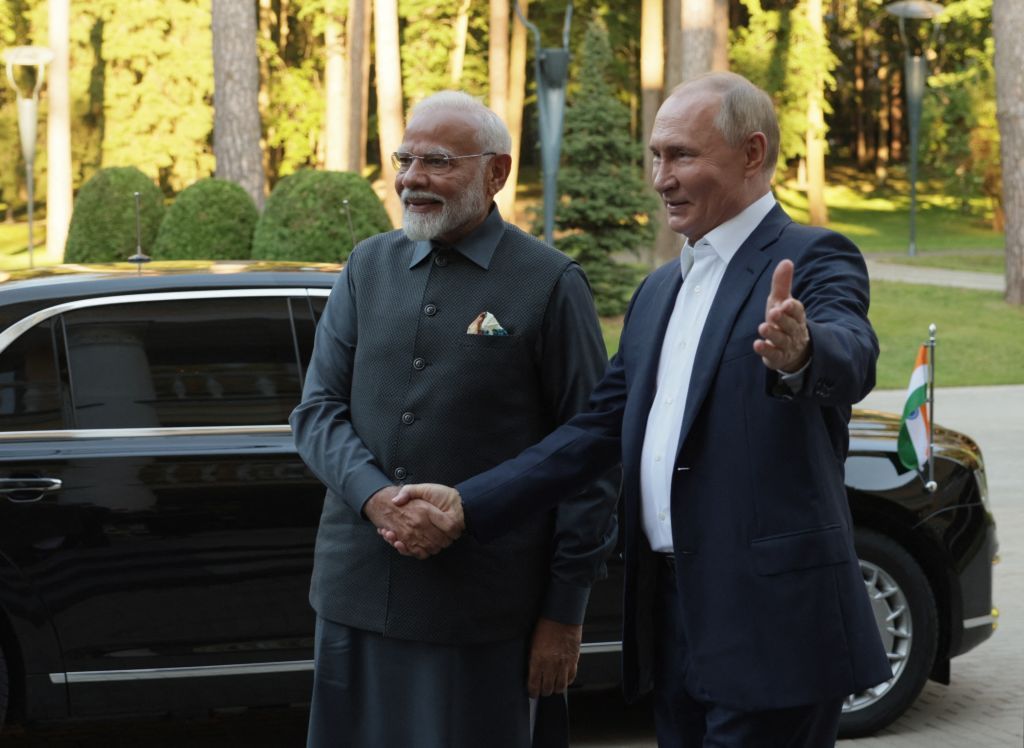Opinion: Were the Istanbul peace talks a missed opportunity for Ukraine?
Moscow’s dismal track record with security agreements suggests that the 2022 Russian-Ukrainian peace talks in Istanbul were unlikely to succeed.

Turkish Foreign Minister Mevlut Cavusoglu (C) delivers a thank you speech during the peace talks between Russian and Ukrainian delegations at the Dolmabahce Presidential Office in Istanbul, Turkey, on March 29, 2022. (Cem Ozdel/Anadolu Agency via Getty Images)

Andreas Umland
Analyst at the Swedish Institute of International Affairs' Stockholm Center for Eastern European Studies
Recent reflections on the Russo-Ukrainian peace talks in Istanbul at the start of the full-scale invasion in 2022 offer new insights and perspectives. However, they often overlook a crucial factor: Moscow’s dismal history of honoring political and security agreements with former Soviet republics. Many analyses naively assume the Kremlin would adhere to any signed deal, ignoring Russia’s well-documented pattern of broken promises.
Over the past 35 years, Russia has repeatedly demonstrated a disregard for legal agreements, often with tragic consequences. Key agreements between Moscow and Kyiv, central to post-Soviet international relations, have been breached time and again.
One of the most significant was the 1991 Belovezha Agreement, which marked the end of the Soviet Union. Russian President Vladimir Putin later famously described the USSR's breakup as the “greatest geopolitical catastrophe of the 20th century.” This treaty, ratified Russia, Belarus, and Ukraine, established the Commonwealth of Independent States, and delineated new state borders, including Ukraine’s sovereignty over Crimea and Donbas. Article 5 of the agreement pledged mutual respect for these borders and territorial integrity.
Just three years later, the Budapest Memorandum on Security Assurances was signed, through which Russia, the U.S., and the U.K. promised to uphold Ukraine’s territorial integrity and sovereignty in exchange for Ukraine relinquishing its nuclear arsenal – then the third largest in the world. Ukraine committed to dismantling its strategic rockets and transferring all weapons of mass destruction and delivery systems to Russia.
Despite these assurances, Russia has systematically violated its commitments. Since 2014, Russia has not only set up so-called “people’s republics” on Ukrainian soil but also annexed Ukrainian regions in 2014 and 2022.
Moscow has also violated most of the deals connected with its war against Ukraine, including the Minsk agreements, which Ukraine signed at gunpoint in 2014 and 2015. In the September 2014 Minsk Protocol (Minsk I), Russia committed to withdrawing illegal armed groups and military equipment from Ukraine. The February 2015 Minsk II Agreement (Minsk II) promised the removal of all foreign armed forces and mercenaries, under OSCE supervision, and the disarmament of illegal groups. The Kremlin never gave any sign of starting in earnest to fulfill these and other promises, and probably never intended to do so in the first place.

To fully grasp the improbability of a successful peace deal in Istanbul in 2022, one must also consider Russia’s history of broken agreements with countries other than Ukraine, especially those signed before, or in between, Putin’s presidencies, including with Moldova and Georgia. These violations reveal a broader pattern in Russia’s approach to its so-called “near abroad” – demonstrating that the issue extends beyond Ukraine and Putin’s personal influence.
In October 1994, Moscow signed an agreement with Moldova, committing to withdraw its military forces within three years. That same year, Moldova enshrined its neutrality in its new constitution, explicitly prohibiting the stationing of foreign troops on its soil. Despite these commitments, Russian forces, now known as the so-called Operational Group of Russian Forces, remain in Moldova, defying both the treaty and Moldova’s constitutional neutrality.
Moscow’s disregard for these agreements parallels its current stance in the ongoing debate over a potential Russian-Ukrainian compromise, where similar issues of neutrality and foreign troop presence are at play.
Russia’s behavior in Georgia tells a similar story. The August 2008 ceasefire agreement required Russian troops to withdraw from Georgia’s Abkhazia and Tskhinvali regions. Yet, Moscow not only kept a significant number of troops in Georgia but also recognized Abkhazia and South Ossetia (the Tskhinvali region) as so-called independent states, further violating the agreement.
Contrary to the optimism of some analysts, the prospect of a achieving a lasting settlement between Kyiv and Moscow in Istanbul in 2022 was slim from the outset. Russia’s history of using peace talks as a strategic tool in its hybrid warfare against post-Soviet states suggests that any agreement would have been heavily skewed in Moscow’s favor and likely ignored soon after signing. The pattern is clear: Russia invades, forces through a slanted agreement at gunpoint, and then selectively implements – or outright ignores – its provisions.
Even if a deal had been reached in Istanbul, it would likely have been another example of Russia’s subversion of international law, leading not to peace, but to continued aggression and territorial expansion. Each new Russian invasion tends to be worse than the last, making any hopes for genuine peace through negotiations, in which Ukraine is forced to engage from a weaker position, increasingly unrealistic.
Editor’s Note: The opinions expressed in the op-ed section are those of the author and do not purport to reflect the views of the Kyiv Independent. The article is based on a more detailed investigation by the Stockholm Centre for Eastern European Studies.












